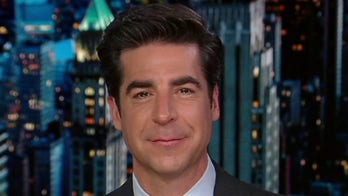J.K. Rowling has dared the police to arrest her after Scotland's controversial new hate crime law came into effect. The law, which critics warn will have a chilling effect on free speech, has drawn criticism from Rowling and other prominent figures.
J.K. Rowling, the author of the "Harry Potter" series, has challenged the police to arrest her after Scotland's new hate crime law came into effect. The law, which critics warn will have a chilling effect on free speech, has drawn criticism from Rowling and other prominent figures.
Rowling has been a vocal critic of the transgender ideology, and she has accused the Scottish government of abandoning women's rights by allowing biological males to self-identify as female. In a recent tweet, Rowling said she would welcome a meeting with the Labour Party to discuss women's rights, but only if the party also agreed to meet with women's organizations it previously designated as hate groups.

J.K. Rowling Challenges Police After Scotland's Hate Crime Law
"I'll be happy to meet after @NoXYinXXprisons, @LesbianLabour, @WomensRightsNet, @Womans_Place_UK and @AllianceLGB have been given in person meetings with the Labour leadership," Rowling wrote. "I'd also like to know whether @AngelaRayner still considers the last two organisations hate groups - asking on behalf of female survivors of domestic violence and gay people who don't subscribe to gender identity ideology."
Rowling's comments come after Labour Party Shadow Chancellor Rachel Reeves said the party would be willing to meet with Rowling to discuss her concerns. However, Reeves insisted that the party's support for the Equality Act, which protects access to single-sex spaces based on biological sex, has not changed.

J.K. Rowling Challenges Police After Scotland's Hate Crime Law
"For me those protections, whether it is about prisons, refuges, changing spaces, that is really important to me, it is really important to the Labour Party that those single-sex spaces based on biological sex are protected," Reeves said. "And nothing in our plans goes contrary to that, nothing at all."
Rowling's comments also followed an op-ed she published in The Times in which she suggested she may not vote for the Labour Party despite being a lifelong supporter.

J.K. Rowling Challenges Police After Scotland's Hate Crime Law
"As long as Labour remains dismissive and often offensive towards women fighting to retain the rights their foremothers thought were won for all time, I'll struggle to support them. The women who wouldn't [hush] didn't leave Labour. Labour abandoned them," Rowling wrote.
The Scottish government has defended the new hate crime law, saying it is necessary to protect transgender people from discrimination and violence. However, critics say the law is too broad and could be used to silence legitimate criticism of transgender ideology.

J.K. Rowling Challenges Police After Scotland's Hate Crime Law
The law has also been criticized by the United Nations Human Rights Committee, which has expressed concern that it could violate the right to freedom of expression.
The debate over the new hate crime law is likely to continue in the coming months. It remains to be seen whether Rowling will be arrested for her comments, but her challenge to the police is a reminder that the issue of free speech is far from settled in Scotland.










